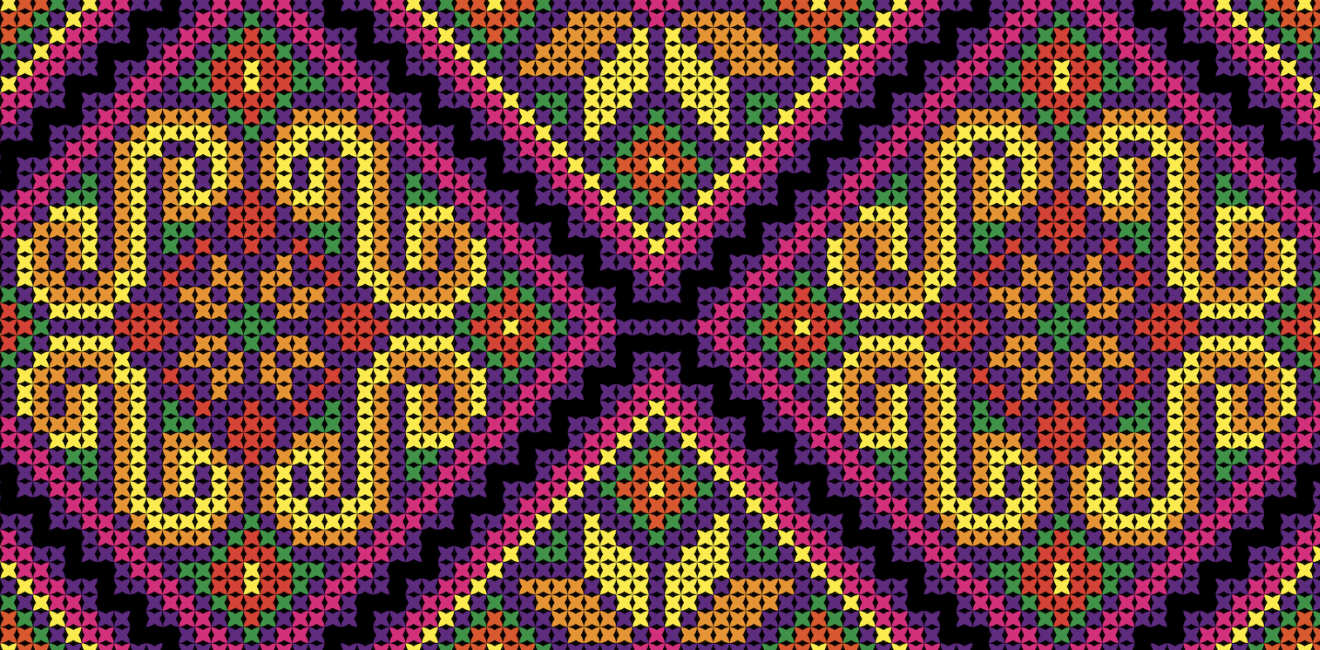As Beata Wojna mentioned earlier in this blog, the Mexican perspective on wartime Ukraine is dominated by ambiguities, prompted by both Mexico’s foreign affairs and internal policies. While undoubtedly linked to the particular stance undertaken by the current Mexican government, the ambiguity is rooted in a more profound underlying historical contradiction incorporated in Mexican society when it comes to the questions of recognition of Ukraine’s agency, the country’s rich history of resistance to colonialism, and possible parallels to be made between anti-colonial resistance histories of Ukraine and Mexico.
These ambiguities are best represented in culture as a political and historical construct split between seeing Russia as heir to the Soviet Union while expressing the related socialist sentiment, and following a seemingly neutral position that at times is reminiscent of simple indifference. My experience of collaboration with Mexican institutions as an art historian, lecturer, and curator has shown that the visions of the past and the repercussions of the uneasy history of the twentieth century, particularly that of the Cold War narratives, often overshadow the present situation – and this is something that needs to be challenged, in particular, by the development of sustainable and durable cultural links between the two countries. Mexican ambiguity within a similar situation in the Latin American scene is indeed at times worrying but explainable by a number of factors. It is noteworthy that the region is nearly fully overlooked by Ukraine’s cultural diplomacy at a time when Ukraine needs to consolidate international support. However, the dialogue can and must be established – and cultural exchange transmitting political and social perspectives is one of the powerful ways to do so.
My experience of talking about the Russian war against Ukraine in Mexico began with the exhibition La línea del frente. El arte ucraniano, 2013-2019 at the National Museum of Cultures in Mexico City. The exhibition featured such Ukrainian artists as Zhanna Kadyrova, Mykola Ridnyi, Yevgenia Belorusets, Lada Nakonechna, and Roman Minin, among others, and Estonian artist Kristina Norman. It focused on the artistic reflections on the wartime violence and displacement caused by Russian aggression, as well as the topics of resistance and identity construction following the 2013/ 2014 Euromaidan protests and the subsequent occupation of southern and eastern parts of Ukraine by Russia. I co-curated this project with historian Hanna Deikun, whose precedence from Mariupol helped to bring an expanded perspective on Ukraine’s east, particularly, in the satellite events program, which included an expanded calendar of documentary screenings at the National Cinematheque in Mexico City.
Located at one of the most visited museums in Mexico, the exhibition was visited by up to 1,500 people daily. This project presented a truly groundbreaking experience for me as a curator, as I discovered that very complex and entangled topics can be discussed through a comparative approach over such universal concerns as experiences of violence and displacement, and turning to the traumatic history, such as the relevance of the Tlatelolco massacre of 1968 for the discussion on the outset of violence against civilians during the Euromaidan protests. The series of conferences that we organized at the Museum of Memory and Tolerance involved Ukrainian, Mexican, and international intellectuals for the discussion on the significance and impact of the war on Ukraine’s society and culture and Mexico’s response to it. One case that showed how the war in Ukraine resonated in Mexico through the notion of violence-caused displacement was when a member of the audience approached me after the event to talk about how she needed to leave her work in the state of Sinaloa and relocate to Mexico City after several shootings occurred repeatedly within less than a week right outside the windows of her office.
The impressively thick guestbook for the exhibition showed particular dissent between the numerous plausible reviews and significantly outnumbered but nevertheless notorious propaganda-fueled comments either falsely accusing Ukrainians of bombing Donbas or discussing the role of NATO as a justification for the occupation. This perspective seemed symptomatic to me, as it was representative of the widespread impact that Russian propaganda channels, such as Russia Today, had on Spanish-speaking Latin America over the years.
In April 2022, I gave an online course on the reasons and consequences of the Russian war against Ukraine to counter this widespread disinformation campaign after the onset of the full-scale invasion in February 2022, further disseminated by Mexican media, particularly that of leftist orientation, like La Jornada published by the National Autonomous University of Mexico. This course had a particular focus on the history of Ukraine’s colonization by Russia. Over 170 students from across Latin America and beyond registered for this course hosted by the Museum of Memory and Tolerance. Each session comprised sufficient time for questions, and from those questions and subsequent discussions I could gather that the exaggeration of NATO’s involvement in the war with a hyperbolized evaluation of Russia’s military and nuclear power reminiscent of the Cold War time propaganda outweighed any other angle, and I noted that particularly the question of Ukraine’s struggle against colonialism as comparable to Latin America’s own experience on this account remained open.
This further pushed me to search intersections between Latin American problematizing of colonialism and decoloniality and the ways how this perspective can be applied to the Ukrainian case. My premise is that Ukraine can rely on the Latin American regional experience – and Mexican postcolonial perspectives, in particular - but for this a deeper mutual understanding of both countries’ social processes, cultures, and political dynamics is a necessary precondition. After 2022, I worked on several texts on Ukraine’s decoloniality and decolonization and discussed the necessity of the development of methodology and terminology for analyzing Ukraine’s particular colonial situation vis-à-vis Russian imperialism. I am currently working on the book under the working title Ambicoloniality and War: The Ukrainian-Russian Case which will be published by a major international publisher at the end of 2023 and will attempt to propose a new theoretical framework for the analysis of Ukraine’s and Russia’s colonial entanglement while referencing the decolonial theory from Latin America.
The reasons for certain misunderstanding of Ukraine in Mexico are numerous but the main cause is the long-term absence of Ukraine’s consequent cultural policy in Mexico and Latin America, the lack of Ukraine’s information channels covering Spanish-speaking countries, and finally, the persistence of negative stereotypes dating back to the Cold War narratives fueled by Russia-backed media, when Ukraine is seen as part of ‘neoliberal’ pro-Western world, and thus in popular political imagination in Mexico is denied its right to an anti-colonial struggle. The ways to overcome this discrepancy are to develop links and connections between the two countries, expand Ukraine’s cultural presence in Mexico and vice versa, and further work on dialogue. As my experience has shown, the combination of working through visual and audiovisual culture and research events fosters exchange and gives way to establishing a dialogue through a comparative approach.
Author


Mexico Institute
The Mexico Institute seeks to improve understanding, communication, and cooperation between Mexico and the United States by promoting original research, encouraging public discussion, and proposing policy options for enhancing the bilateral relationship. A binational Advisory Board, chaired by Luis Téllez and Earl Anthony Wayne, oversees the work of the Mexico Institute. Read more

Explore More
Browse Insights & Analysis
Iraq Should Consider Extending UNAMI’s Mission





